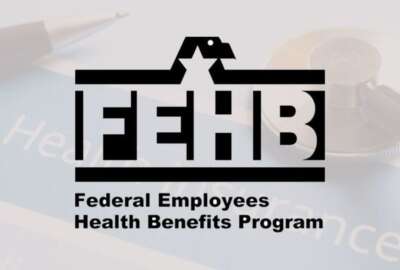Better get organized for open season
"There's a lot of things that come up that could change your life dramatically that just means that maybe there's a better plan for you," said Thiago Glieger.
Open season means federal employees have homework. Time spent now planning for your health care coverage can pay off later both in money and health. Here with some things to think about on the Federal Drive with Tom Temin, principal Thiago Glieger of RMG Advisors.
Interview transcript:
Tom Temin And I wanted to start with the idea of changing plans. Is something not enough people do or most people don’t do. Let’s put it that way. Probably more people should. And give us the ground rules for, aside from the cost of the plans, evaluating your own life for deciding whether it’s time for a change.
Thiago Glieger The idea of open season is that it’s designed to really give you a refresher on your benefits right, Tom. And so there’s a lot of things that come up that could change your life dramatically that just means that maybe there’s a better plan for you out there. So what are some of those things, we often see things like marriage or maybe now you have another child. Sometimes people go through a divorce and now they have to think about how they’re going to take care of their health, or perhaps their health itself has changed. Sometimes a doctor might no longer be inside the network. We have had cases where a doctor doesn’t take that specific insurance carrier anymore. And so it’s important that somebody do the research to see what’s going on in my plan for next year. There’s changes that happen, sometimes they’re dramatic, sometimes they’re not. So you want to look at how those changes and how changes in your life impact your situation.
Tom Temin And then, of course, you do have to look at the plans because of the average prices that went up so much. This will be going up in ’25.
Thiago Glieger That’s right. There are a large number of plans. I think most of them at this point are almost double digits in increasing price. So that’s a really big factor for people. Although the cost is not always the factor. Generally speaking, the coverage is going to be commensurate with the price. But a higher price plan does not always necessarily mean that it’s a better quality plan. Some of the plans will have a higher deductible, but they have no co-pays. Other plans will have a co-pay, but maybe that’s a lower deductible. So you have to see which one may work out better for you depending on what you’re looking for. And a really good place to start to do that is to look at the plan summary brochure. That is something that the insurance carrier will provide for each individual plan. And then they talk about if you have these scenarios, what can you expect your out-of-pocket costs to really be?
Tom Temin Because each plan is not just a plan, but they have A,B,C,D,E,F,G that you have to look at.
Thiago Glieger That’s right. There are some plans that will be preferred providers like the PPOs. Others are health maintenance organizations, HMOs. There’s high deductibles. And to your point, even within those, there’s a higher plan and then there’s a lower plan. Blue Cross Blue Shield is the really popular one where folks will get Blue Cross standard. And then there’s also Blue Cross Basic. And so those two plans operate very similarly. But one is a higher cost because there are some additional coverages.
Tom Temin Yeah. So the words don’t really quite describe it very well. Standard and plus or something. You got to really look at those charts, I suppose. And there’s a total cost there too, which is the premium plus things like co-pays.
Thiago Glieger That’s right. When people look at their insurance costs, they should be considering how much they’re going to be using the plan, because if there’s a co-pay every time you go to the doctor, you’re paying $25, $30. You should think about if you have a recurring physical therapy appointment that you go to, tally that up and you need to add that to your actual premium costs for the year. And then you also want to look at out-of-pocket costs. Are there any deductibles that may come with that as well? Those are costs that are going to be absorbed fully by you as the participant before the insurance is going to kick in. So sometimes if you have a high deductible plan and you happen to get injured in that year or you may have a procedure that you’re planning that could be a year that maybe you don’t have a high deductible plan because you’re just going to need coverage and it’s going to have to come out of pocket if you did.
Tom Temin And co-pays can vary between the primary holder and members of the family or codependence.
Thiago Glieger Yeah, I believe they can. And even depending on what kind of services that you’re looking for can be co-pays on the prescriptions, there can be co-pays on just regular care. If you’re seeing a specialist, the co-pay generally is higher than it is if you’re just seeing a regular care provider.
Tom Temin And I wanted to ask you, too, about being the open season. The larger question, as you mentioned at the top, it’s a good time to assess your situation generally in life. And that brings up the topic of insurance coverage outside of health insurance coverage, things that you should maybe do a little house updating at this point.
Thiago Glieger I like to encourage people to really take the time while they’re in this mindset of thinking about their insurance, to look at other insurance coverages as well. So your life insurance is a really important factor to think about. Bagley does not have open season as regularly as everyone else does, but that doesn’t mean that you shouldn’t still be looking at your life insurance. But there’s also other parts like long term care, that too is still closed for new applicants. But you can be looking outside for your federal or your long term care coverage as well. But even things like property and casualty, Tom. If you think about the price of your house and how houses have risen in cost in value over the last several years, when’s the last time somebody has looked at their coverage for home and property and said, Do I have the minimum amount of coverage that my insurance company tells me I need to have? If the value has gone up and your insurance has not gone up, you might have a gap in coverage. And if anything happens, that cost is going to be born by you and not the insurance. So it’s just a good moment to look at those things, get those checkboxes done while you’re in the spirit.
Tom Temin Your recent history shows that even if you’re up in the mountains a thousand miles from a coastal hurricane, you can still get flooded out.
Thiago Glieger And specifically, flood is a big one because most insurance companies are going to exclude flooding. Another one that’s really popular, especially if you live in colder climates up in the Northeast or Chicago, pipes that are freezing. This is a specific exclusion out of home coverage policies. And a lot of people don’t have the coverage unless they specifically ask for it. So if you live in these higher northern states in your pipes or freezing, that could be a catastrophic loss to you. And I’ve seen it happen.
Tom Temin Yeah. So if you go on vacation, turn off the water and drain everything. That’s worth the effort when you get back home. We’re speaking with Thiago Glieger. He is a principal at RMG Advisors of Rockville, Maryland. And getting back to the open season, what are we seeing in dental and vision? This is a big part of people, especially feds, that are getting a little long in tooth there, you might say.
Thiago Glieger That’s right. As you progress through your life and you are looking towards retirement, you don’t want to neglect those two things. The dental and vision is a much easier solution, because there’s really not as much choice as there is in the FEHB plans. But what you want to really think about, especially when it comes to dental or whether or not you are planning any upcoming procedures, you can either go with the high plan if you’re thinking about doing it a little bit more dental work or if you need to get new glasses or any kind of procedures done. And then in other years, you need to just remember to go back down to the lower, more cost efficient plan, because it’ll help you save a little bit of money.
Tom Temin All right. And for those that might be in the military health system, the integration of Tricare and FEHB, what are some of the subtleties there that people might miss?
Thiago Glieger For folks with Tricare, they want to think about which kind of coverage is going to benefit them. And for them, it’s going to be a matter of which carriers they’re used to seeing, which providers are currently giving them the care that they need, and what coverages are going to be used either with Tricare or with FEHB. This is particularly important when they start to head into retirement, because if you stick with FEHB, you don’t need to take Medicare as a supplement in Part B once you turn 65. But that is not the case for Tricare holders. Tricare holders need to go to Tricare for life. And so the benefit of having both options is that it covers that five year window that you need to have the insurance. And then if you’re going to stick with Tricare, you have to remember to turn on Part B once you turn 65.
Tom Temin And you can maybe come and go with Part B, but you can’t come and go with Tricare and FEHB.
Thiago Glieger That’s right, because the requirement to have that coverage is five years consecutively up until the last day that you are employed. So you don’t want to drop that coverage under any circumstance.
Tom Temin And after you retire, same thing. You can drop FEHB, but you can’t come back to it once you’re in retirement.
Thiago Glieger That’s right. If you’re going to keep the Tricare plus Medicare Part B, any time you do Medicare, whether it’s with FEHB or Tricare, Medicare Part B is going to be your primary insurance provider. And then the supplement, which is the additional 20% that’s not covered by Medicare, that’s where Tricare or FEHB fill in the gap really neatly. For everyone else in the private sector, they have to go to a private carrier. Now, military or federal employees can either use Tricare or Refuge B.
Tom Temin And just to get back to our original point, yes, on average plans are going up. Some are actually coming down, some are going up more than the average. But you really have to see what you’re getting, and look at what has changed in your plan if you’re going to stick with it before you decide to stick with it.
Thiago Glieger That’s the benefit of open season. It’s an opportunity to look at the menu, see what really fits your needs as your life has changed around.
Copyright © 2025 Federal News Network. All rights reserved. This website is not intended for users located within the European Economic Area.
Tom Temin is host of the Federal Drive and has been providing insight on federal technology and management issues for more than 30 years.
Follow @tteminWFED






